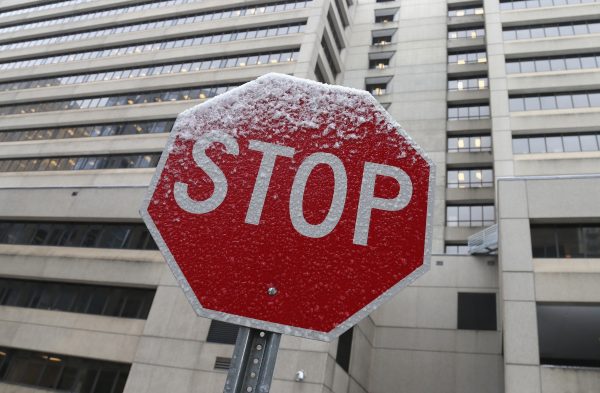
A Neumora Therapeutics drug candidate addressing a promising and competitive target for schizophrenia has been placed under an FDA clinical hold after new preclinical data emerged showing convulsions in rabbits that received the experimental treatment.
The Neumora drug, NMRA-266, began Phase 1 testing last November. The clinical hold announced Monday pauses the study, which had dosed about 30 healthy participants so far. Watertown, Massachusetts-based Neumora said no convulsions have been observed in any of the study participants. The company added that it is working with the FDA to resolve the clinical hold and will provide an update on the program’s status when new information becomes available.
“We are disappointed with the unanticipated safety findings in rabbits and are discussing next steps with the FDA,” Neumora President and CEO Henry Gosebruch said in a prepared statement.

When Investment Rhymes with Canada
Canada has a proud history of achievement in the areas of science and technology, and the field of biomanufacturing and life sciences is no exception.
Neumora licensed NMRA-266 from Vanderbilt University in 2022 for $13 million up front and potentially up to $380 million more tied to milestones. The small molecule is designed to selectively target and activate muscarinic acetylcholine receptor type 4 (M4) to treat schizophrenia and other neuropsychiatric disorders. The FDA clinical hold keeps Neumora from catching up to other companies pursuing this target. Cerevel Therapeutics, which is in the process of being acquired by AbbVie for $8.7 billion, has reached Phase 2 development with its M4-targeting molecule, emraclidine. Neurocrine Biosciences is also in mid-stage development with a selective M4-agonist. Karuna Therapeutics, acquired by Bristol Myers Squibb for $14 billion, developed KarXT, a molecule that targets both the M1 and M4 receptors. This drug is currently under regulatory review and faces a late-September target date for an FDA decision.
William Blair analyst Myles Minter spoke to Neumora’s management about the clinical hold. In a research note, Minter wrote that the company emphasized the convulsions were not observed in the two other preclinical animal models used. The company did not specify those models, but Minter presumes those models were mice and monkeys. Neumora also noted that none of the study participants dosed so far has experienced convulsions, suggesting that the safety signal may be specific to the rabbit model.
If Neumora is unable to resolve the clinical hold on NMRA-266, the company has other M4-targeting molecules included in the Vanderbilt licensing agreement. Neumora is continuing preclinical and toxicology work on these molecules and expects to submit an investigational new drug application for one of them in 2025.
Minter said Neumora is facing a delay of about two months if discussions with the FDA lead to a lift of the clinical hold. But if the issues cannot be resolved and Neumora drops NMRA-266 to pursue one of its backup molecules, the delay could be as long as a year. Despite the setback, Minter said Neumora investors remain mainly focused on lead program navacaprant, a drug that blocks the kappa opioid receptor. Three Phase 3 tests of this drug are ongoing in major depressive disorder (MDD). Preliminary data from the first one are expected in the second half of this year. The other two Phase 3 studies are expected to post preliminary data in the first half of 2025.

Using Informed Awareness to Transform Care Coordination and Improve the Clinical and Patient Experience
This eBook, in collaboration with Care Logistics, details how hospitals and health systems can facilitate more effective decision-making by operationalizing elevated awareness.
“We remain optimistic about the potential for the novel [kappa opioid receptor antagonist] class in treating challenging symptoms of MDD including anhedonia; however, neuropsychiatry drug development carries the usual clinical risk,” Minter said.
Neumora went public last September, raising $250 million in an IPO priced at $17 per share. The company’s shares opened Monday at $11.07 apiece, down 18.3% from Friday’s closing price.
Photo: Streeter Lecka/Getty Images












